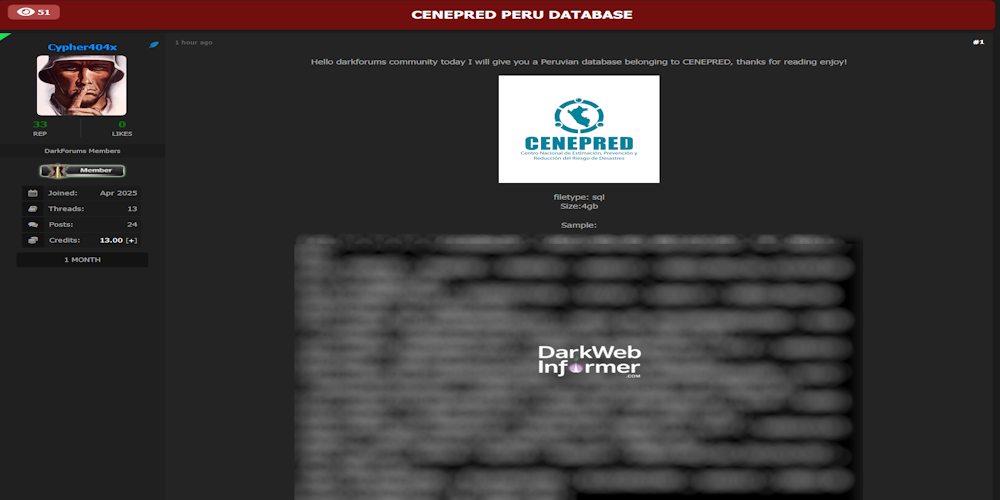CyberAlerts is shutting down on June 30th, 2025. Thank you for your support!
Example Searches:
CVE
Threat Actors
Countries
Vendors
Severity
Known Exploited

|
Description: Impact
A potential vulnerability exists in ZITADEL's password reset mechanism. ZITADEL utilizes the Forwarded or X-Forwarded-Host header from incoming requests to construct the URL for the password reset confirmation link. This link, containing a secret code, is then emailed to the user.
If an attacker can manipulate these headers (e.g., via host header injection), they could cause ZITADEL to generate a password reset link pointing to a malicious domain controlled by the attacker. If the user clicks this manipulated link in the email, the secret reset code embedded in the URL can be captured by the attacker. This captured code could then be used to reset the user's password and gain unauthorized access to their account.
It's important to note that this specific attack vector is mitigated for accounts that have Multi-Factor Authentication (MFA) or Passwordless authentication enabled.
Patches
Patched version ensure proper validation of the headers and do not allow downgrading from https to http.
3.x versions are fixed on >=3.2.2
2.71.x versions are fixed on >=2.71.11
2.x versions are fixed on >=2.70.12
Workarounds
The recommended solution is to update ZITADEL to a patched version.
A ZITADEL fronting proxy can be configured to delete all Forwarded and X-Forwarded-Host header values before sending requests to ZITADEL self-hosted environments.
Questions
If you have any questions or comments about this advisory, please email us at [email protected]
Credits
Thanks to Amit Lais...
May 28th, 2025 (21 days ago)
|

|
Description: Impact
A potential vulnerability exists in ZITADEL's password reset mechanism. ZITADEL utilizes the Forwarded or X-Forwarded-Host header from incoming requests to construct the URL for the password reset confirmation link. This link, containing a secret code, is then emailed to the user.
If an attacker can manipulate these headers (e.g., via host header injection), they could cause ZITADEL to generate a password reset link pointing to a malicious domain controlled by the attacker. If the user clicks this manipulated link in the email, the secret reset code embedded in the URL can be captured by the attacker. This captured code could then be used to reset the user's password and gain unauthorized access to their account.
It's important to note that this specific attack vector is mitigated for accounts that have Multi-Factor Authentication (MFA) or Passwordless authentication enabled.
Patches
Patched version ensure proper validation of the headers and do not allow downgrading from https to http.
3.x versions are fixed on >=3.2.2
2.71.x versions are fixed on >=2.71.11
2.x versions are fixed on >=2.70.12
Workarounds
The recommended solution is to update ZITADEL to a patched version.
A ZITADEL fronting proxy can be configured to delete all Forwarded and X-Forwarded-Host header values before sending requests to ZITADEL self-hosted environments.
Questions
If you have any questions or comments about this advisory, please email us at [email protected]
Credits
Thanks to Amit Lais...
May 28th, 2025 (21 days ago)
|

|
Description: Decentralized finance platform Cork Protocol paused trading and launched an investigation after millions of dollars' worth of Ethereum were lost in a "security incident."
May 28th, 2025 (21 days ago)
|

|
Description: The Czech Republic on Wednesday formally accused a threat actor associated with the People's Republic of China (PRC) of targeting its Ministry of Foreign Affairs.
In a public statement, the government said it identified China as the culprit behind a malicious campaign targeting one of the unclassified networks of the Czech Ministry of Foreign Affairs. The extent of the breach is presently not
May 28th, 2025 (21 days ago)
|

|
Description: An Iranian national has pleaded guilty in the U.S. over his involvement in an international ransomware and extortion scheme involving the Robbinhood ransomware.
Sina Gholinejad (aka Sina Ghaaf), 37, and his co-conspirators are said to have breached the computer networks of various organizations in the United States and encrypted files with Robbinhood ransomware to demand Bitcoin ransom payments.
May 28th, 2025 (21 days ago)
|

|
Description: The developer claims the tool is for cops, but anyone can sign up and use it for targeted harassment.
May 28th, 2025 (21 days ago)
|
|
CVE-2024-25711 |
Description: diffoscope before 256 allows directory traversal via an embedded filename in a GPG file. Contents of any file, such as ../.ssh/id_rsa, may be disclosed to an attacker. This occurs because the value of the gpg --use-embedded-filenames option is trusted.
EPSS Score: 2.42% SSVC Exploitation: none
May 28th, 2025 (21 days ago)
|

|
Description: Cator, Ruma & Associates falls victim to RHYSIDA Ransomware
May 28th, 2025 (21 days ago)
|

|
Description: Alleged data breach of Centro Nacional de Estimación, Prevención y Reducción del Riesgo de Desastres (CENEPRED)
May 28th, 2025 (21 days ago)
|

|
Description: Impact
CSS Selector expressions are not properly encoded, which can lead to XSS (cross-site scripting) vulnerabilities.
Patches
This is patched in v1.14.0.
Workarounds
Users can apply encoding manually to their selectors, if they are unable to upgrade.
References
https://github.com/chrome-php/chrome/security/advisories/GHSA-3432-fmrf-7vmh
https://github.com/chrome-php/chrome/pull/691
https://github.com/chrome-php/chrome/commit/34b2b8d1691f4e3940b1e1e95d388fffe81169c8
https://github.com/advisories/GHSA-3432-fmrf-7vmh
May 28th, 2025 (21 days ago)
|
